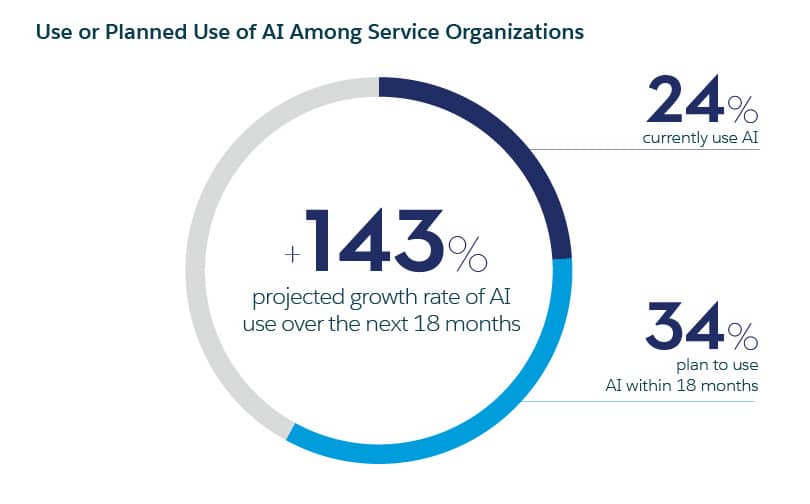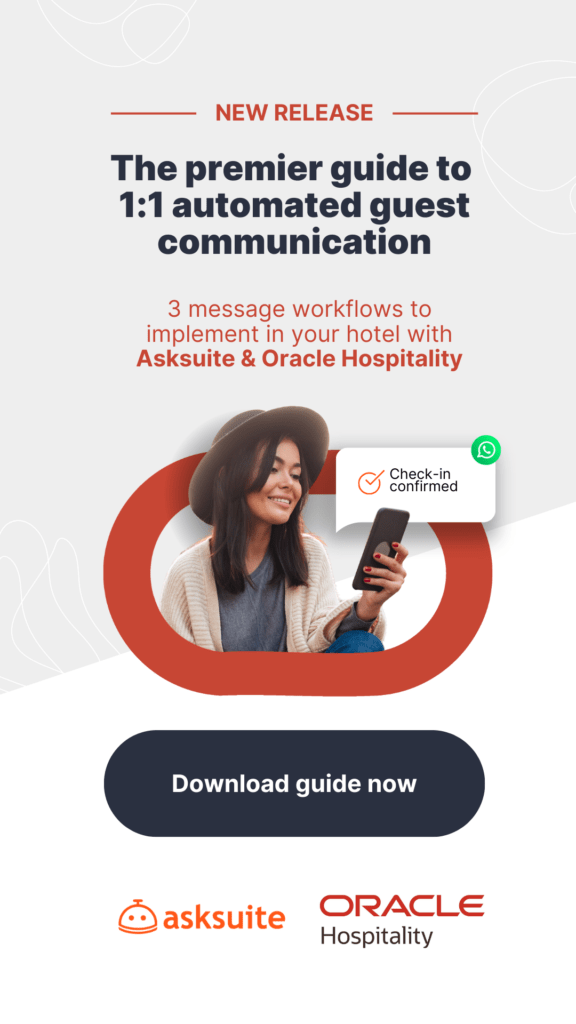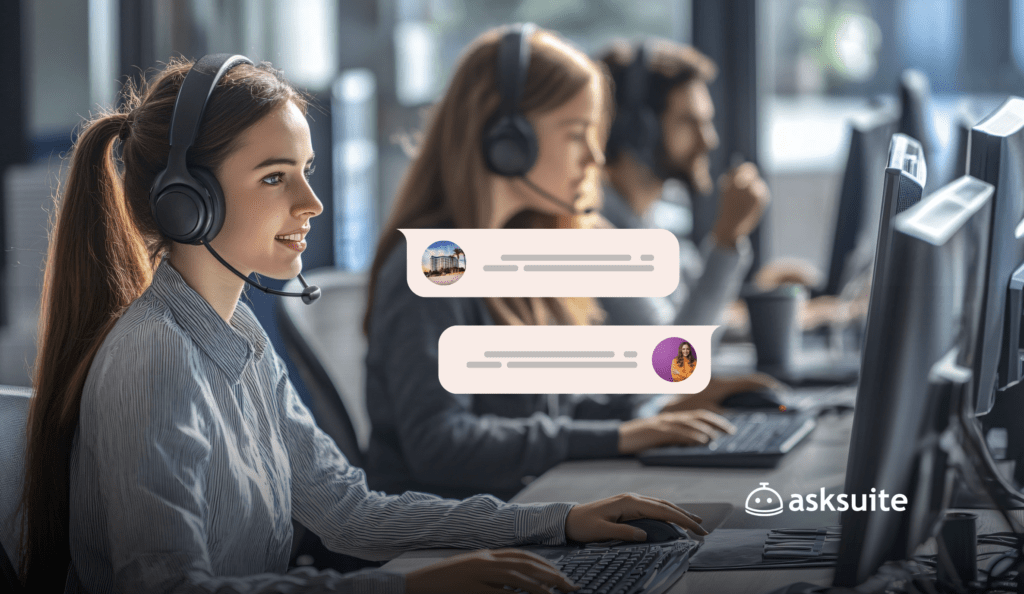What if you could get from 70 – 98% opening ratios on your hotel’s digital marketing campaigns?
In 2018, there was an 18.1% opening rate on average on email marketing campaigns. The travel industry experienced a 20.03% opening rate on email marketing campaigns.
The average click-through rate is 2.3%. Email marketing is still a very effective strategy for hotels. The average opening rate for chatbots is 70 – 80% with a click-through rate between 15 – 60%. Some case-studies done have shown a staggering 98% opening ratio and a 44% click-through rate.
Chatbots have a unique ability to achieve high results simply and effectively.
Let’s dive into how you can use chatbots to leverage the hotel customer experience.
Automate relevant human-centered processes
Typically, chatbots are defined as advanced programs that are designed to simulate human conversations.
Today we experience a trend towards where chatbots are quickly and seamlessly taking over customer interaction processes to deliver a better experience. For many brands, it has become an affordable and innovative way to engage with customers.
And data from Gartner tells us that by 2020 at least 25% of customer service and support operations will integrate virtual customer assistant or chatbot technology.
New innovative service alternatives like Asksuite will help hotels automate many human-centered processes to create a fast and frictionless experience for employees and customers.
Today tasks and activities can be automated.
We experience an abundance of chatbot developers that are eager to reach the hotel industry. From a hotel perspective, the bot developer must have a good understanding of what your customer wants, standard customer service processes, marketing goals, employee focus, value innovation for the chatbot to become successful.
Hotels should collaborate with a bot developer who is also a customer experience expert. You want your hotel chatbot to be as transparent and authentic as possible.
We see many hotels that chosen chatbots to leverage a personalized customer experience through a new channel.
Many chatbots lack critical service and hospitality capabilities, and therefore hotels must look at platforms that are easy to configure and easy to integrate.
A great chatbot will capture the customer intent, interest, context, values, behavior and patterns.
Using chatbots to personalize the customer experience
Personalization is on top of most hotels marketing goals list today. But the reality is that personalized customer experience engagements are not put into practice yet on a large scale. With the help of Asksuite and other similar services, we are starting to see more hotels pioneering this type of process.
Since personalization is trending, we have to look at what is holding hotels back from taking advantage of the opportunities that chatbots have to offer.

With chatbots, we look at new technology like AI and machine learning. This is still for many unfamiliar territories. And with machine learning the technology will over time create data that provide the most relevant response at the right time to the right customer.
New advanced chatbots are now designed to create new and compelling customer experiences. When chatbots collect critical information upfront, customers get seamless escalation to a hotel contact and faster resolution.
Chatbots allow hotels to have two-way conversations at scale. These two-way conversations allow you to collect the information needed to create a high-value, personalized customer experience.
Gather relevant data and tests. The chatbot will gather customer preferences and past bookings, and then turn this into more hyper-targeted personalization.
Iterate and optimize the chatbot
Chatbots focus on both known and unknown hotel and customer intent. One common challenge with chatbots has been that neither hotels nor customers understand its limits, what it can do, or what it can’t do. This is also one of the primary reasons hotels have worked with a chatbot designer that is a customer experience expert.
Hotels will have to assist customers and employees to understand chatbots and their capacity. Today I can use voice to select my TV channels or do some simple search. And I am born and raised in Norway, so my commands come with a little accent, which at times has given me some interesting options.
Just like with voice command options, chatbots have to be iterated and optimized.
Today we have seen data that indicates that as much as 80% of customer interactions have been resolved by chatbots without human interactions. Chatbots have particularly improved on redirecting unknown intent. And through this process, we now experience that chatbots are capable of assisting customers with very specific pain points.
Through chatbots, hotels can handle multiple interactions at the same time.
IBM has done testing via the Watson Conversation platform. And data showed that brands can reduce customer service costs by 30% with chatbots.
A chatbot will help provide a new first line of support, supplement support during peak periods, or offer an additional support option. In all of these cases, employing a chatbot can help reduce the number of customers who need to speak with a human. Your hotel can avoid scaling up your staff or offering human support around the clock.
Chatbots are also used to improve employee, customer and partner experiences. Using a chatbot might be less complicated than you think—and the payoff can be significant.
The future is here. Is your hotel ready?
Credit:
Are Morch – Hotel Marketing Coach. I help make every experience count while improving online visibility and revenue for fast-growing hotels.
Get more from Are on Facebook | Twitter | LinkedIn | Pinterest | Instagram| Podcast




